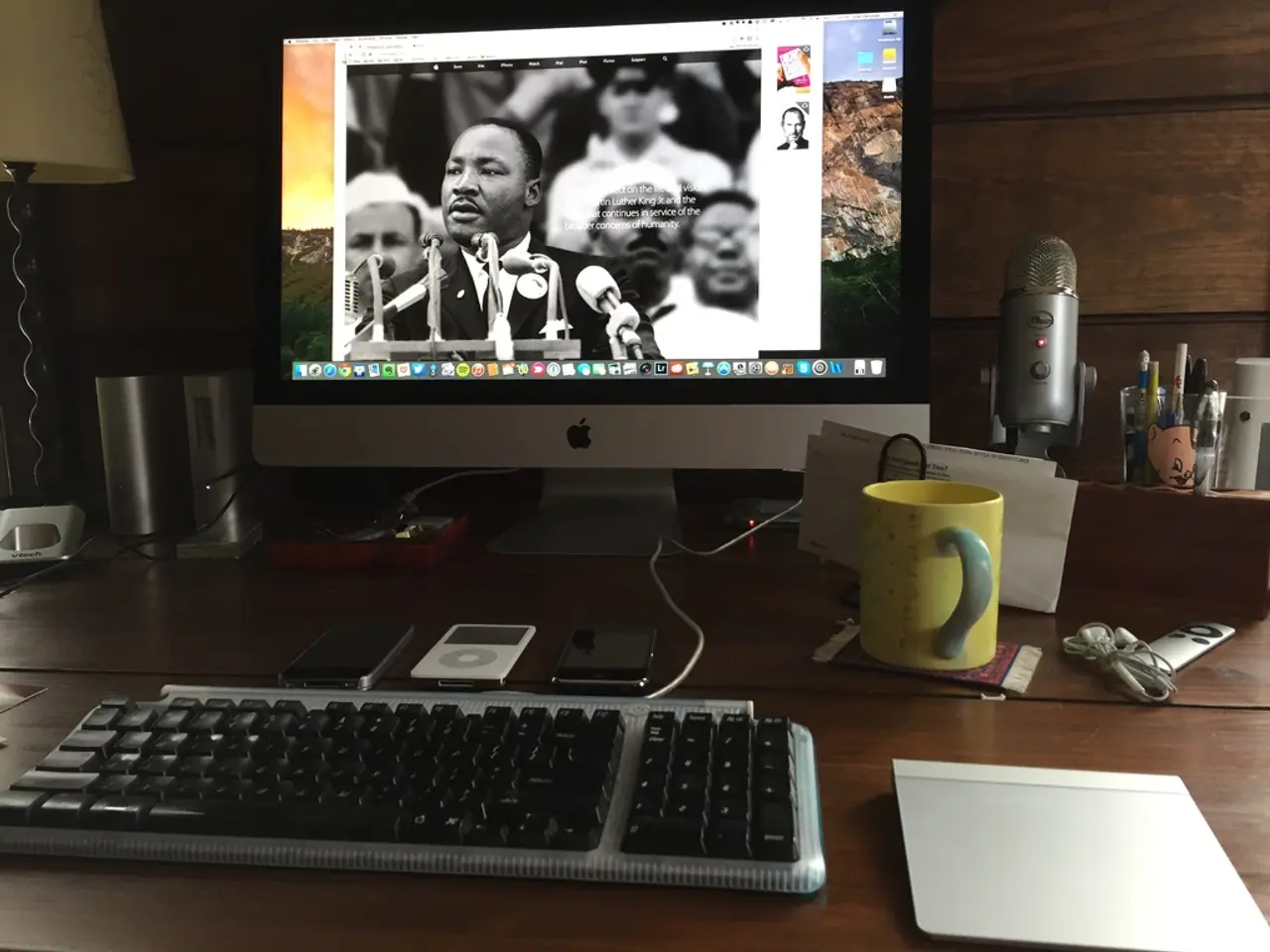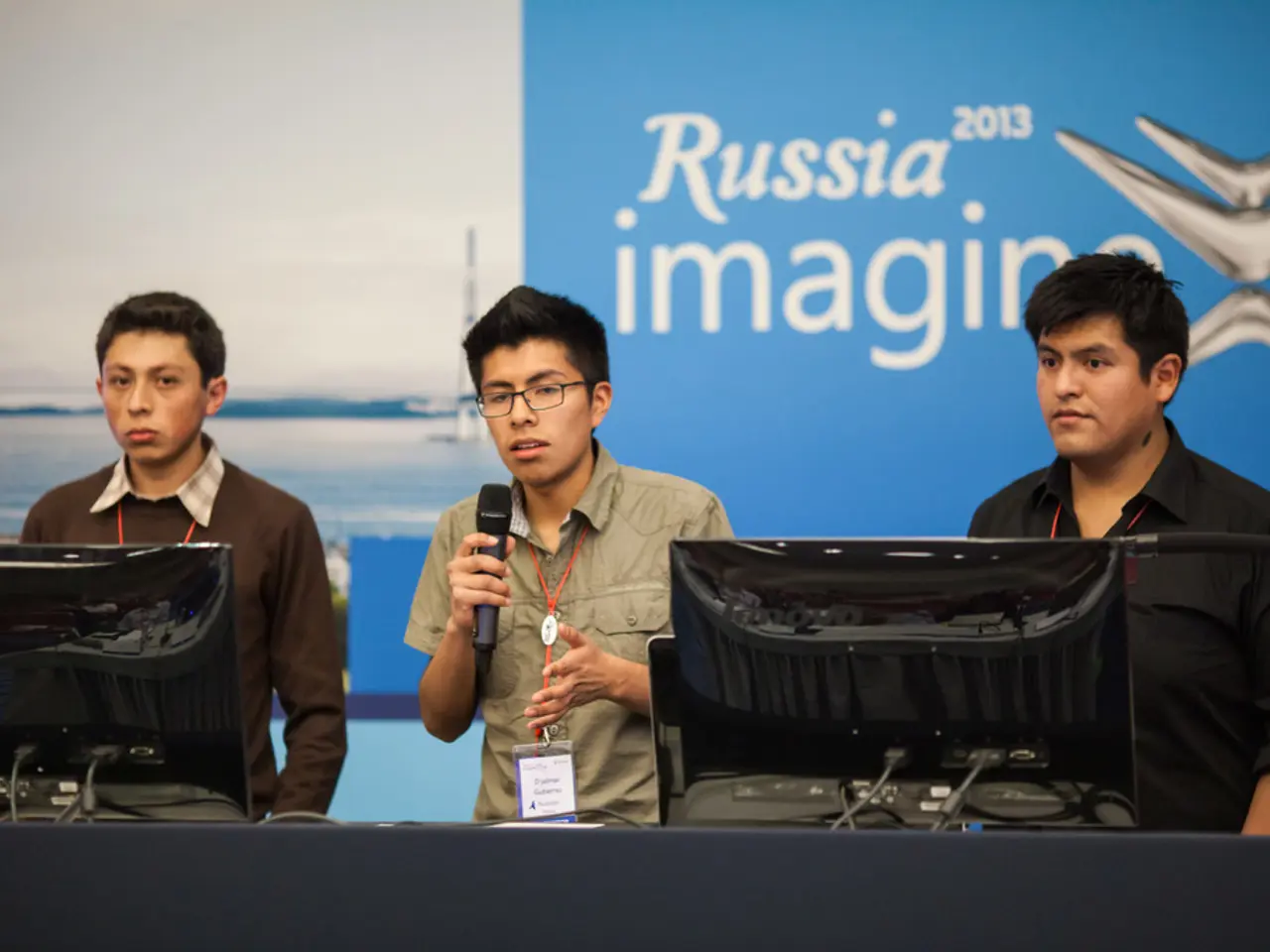AI-Generated Text and Copyright Regulations: Insights Revealed
In the United States, AI-generated content currently does not receive copyright protection due to the requirement of a human author, as works created solely by AI lack this human authorship element[1][2]. However, there is no comprehensive federal legislation specifically addressing AI development or AI-generated content copyrights, so the legal framework is still evolving[4].
Ongoing legal challenges mainly focus on two key areas:
- Training Data and Copyright Infringement: Generative AI models are often trained on large datasets, including copyrighted materials obtained from web scraping or other sources without explicit permission. This has led to lawsuits against AI companies alleging copyright infringement for using artists’ and authors’ works to train AI without authorization[1][2]. The legal question centers on whether such use is fair use.
- Fair Use Doctrine: Recent 2025 U.S. federal court rulings in cases involving AI companies Anthropic and Meta have partially favored the argument that using copyrighted works to train AI can qualify as fair use under copyright law[3]. However, courts emphasize that outcomes depend heavily on specific case facts and evidentiary records, and the fair use defense does not give AI developers blanket immunity[3].
Additional concerns include the so-called "Snoopy Problem," where AI models might “memorize” and output details resembling copyrighted works or characters, potentially violating copyright in indirect ways[1].
The United States Copyright Office (USCO) has released detailed reports underscoring the importance of copyrighted material in training datasets for AI and the tension this creates with copyright owners' exclusive rights. The USCO highlights that copyright owners have rights to reproduce, distribute, publicly display, and prepare derivative works of their creations, but these rights may be limited if AI training and output fall under fair use[5].
| Aspect | Current Status | Challenge and Notes | |-------------------------------------|----------------------------------------------------|-------------------------------------------------------| | Copyright Protection of AI Content | No protection; human authorship required | AI-only content cannot be copyrighted | | Use of Copyrighted Training Data | Often litigated, but some court rulings support fair use | Fair use protection applies case-by-case; no clear consensus yet | | Legal Actions | Lawsuits ongoing against AI companies for data use | Courts assess facts, fair use claims, and market impacts| | Federal Legislation | No specific federal law regulating AI copyright | Legal landscape still evolving; proposals under discussion| | USCO Perspective | Emphasizes need to balance copyright with innovation | Supports fair use in AI training but calls for careful guidance |
Class-action lawsuits have been filed against AI companies, claiming that their works were wrongfully used to train AI models and that the generated works directly compete with the original works[6]. Rob Heverly, an associate professor at Albany Law School, expressed concerns that the U.S. Copyright Office's stance on machines not being considered authors could throw a wrench in ongoing lawsuits regarding generative AI[7].
In the European Union, a sweeping AI Act has been crafted to address concerns with generative AI. Meanwhile, the United Kingdom is one of only a handful of countries to offer copyright protection for works generated solely by a computer[8].
As AI-generated content significantly alters the way people live, work, and create, the evolving legal landscape surrounding AI-generated content in the United States remains a critical issue for both human creators and the technology itself[9].
References: 1. AI and the Law 2. AI and Copyright: A Review of the Current Landscape 3. Fair Use and AI: A Case Study Analysis 4. AI and Copyright: A Review of the Current Legal Landscape 5. The United States Copyright Office's Reports on AI and Copyright 6. Class-Action Lawsuits Target AI Companies Over Copyright Infringement 7. The Copyright Office's Stance on AI as an Author Could Affect Lawsuits 8. UK Gives Computers the Right to Create Copyrighted Material 9. The Impact of AI on Copyright Law
- The ongoing legal challenges surrounding AI-generated content in the United States primarily revolve around the use of copyrighted training data and the application of the fair use doctrine.
- In the absence of comprehensive federal legislation specifically addressing AI development or AI-generated content copyrights, the legal landscape regarding technology continues to evolve, with courts assessing each case's facts, fair use claims, and market impacts.




